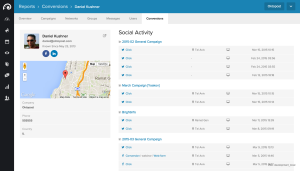
It’s an obvious claim, but it’s worth stating: Organizations benefit from all kinds of diversity. A workforce that has people of different backgrounds with different experiences and types of training can better encourage conversations that bring to light hidden assumptions, leading to novel solutions to difficult problems.
But merely bringing people from different backgrounds into an organization is not enough. This point was made quite nicely in the new book The Art of Insubordination: How to Dissent & Defy Effectively by psychologist Todd Kashdan. (Avery publishers was kind enough to send me an advance copy to review.)
Part of the problem lies with all the mechanisms that make people resist new ideas. People may say they want a diversity of background and opinion in their organization, but there are a number of psychological mechanisms that make it hard to internalize their ideas. It is the responsibility of each individual to prepare to truly listen to the viewpoints of others.
To counteract the tendency to avoid new ideas, Kashdan recommends starting by acknowledging the inclination to discount divergent opinions—and worse, to then use these differences between backgrounds as why the others’ points aren’t valid.
He also recommends giving yourself some distance from the situation to reduce any emotional difficulty of hearing alternative ways to think about a situation. One clever suggestion he makes is to imagine that this is happening to someone else, so that you have to describe your own experience in the third person. That way, you take some of your own motivation and ego out of it.
Preparing people in the organization to be willing to listen to the opinions of others is great, but it only helps if everyone feels comfortable speaking up and expressing their opinions. There are many factors that influence whether people will express what they are thinking.
One important one is whether people feel like they’re part of the same group. Kashdan points out that many organizations have preexisting groups or cliques that can be hard for new employees to break into. Becoming part of a single team is all the more difficult when the new people brought in add diversity of background and experience to the organization. People are often mistrustful of others they perceive as different from themselves.
Kashdan highlights research suggesting that when organizations are welcoming to new people and encourage everyone to hear and accept others’ perspectives, they are more likely to treat everyone as part of the same team. That can create the level of psychological safety needed for other people to share their opinions.
Ultimately, the collective knowledge and wisdom of individuals in an organization can only benefit the team when everyone is empowered to speak. Organizations bear a lot of responsibility for creating an environment in which that will happen. In addition to overseeing hiring, leaders need to make new employees feel welcome and valued, and they need to teach and model behaviors that enable their knowledge and approaches to influence the old way of doing things.
Fast Company , Read Full Story
(30)
Report Post







